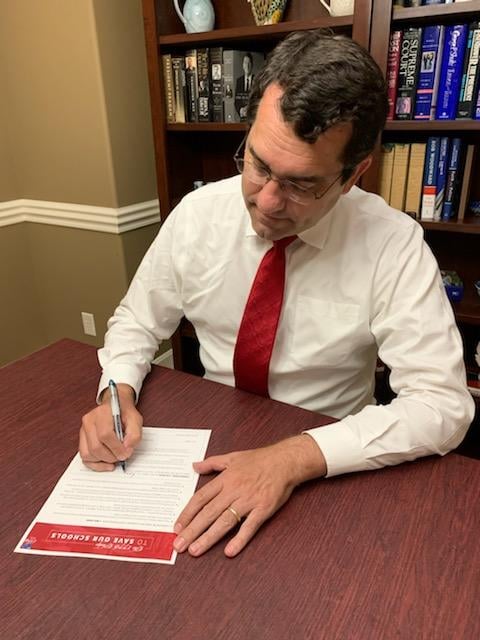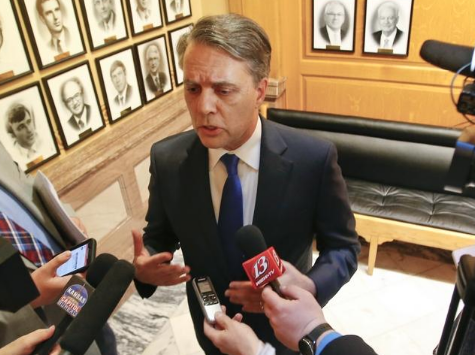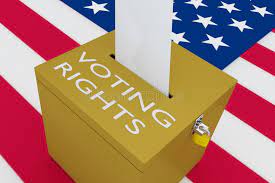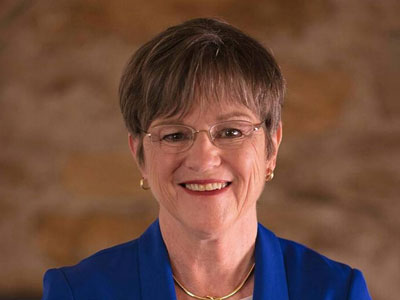Who is Leading the “Censorship Caucus?”
Prominent Kansas Republicans are falling all over each other in their effort to censor Kansas educators.
It started with Attorney General – and Republican gubernatorial candidate – Derek Schmidt when he announced his staunch opposition to a 40-year-old academic paper called “critical race theory.” Schmidt would ban the teaching of critical race theory.
Of course, what Schmidt – and all the critics – fail to realize is that “critical race theory” is not a curriculum, it’s not a class in any school or college, and it’s not practice. It is an examination of how policies and laws established in American society impact citizens based on their race. It is discussing how the practice of “red-lining” resulted in segregated communities and a lack of housing opportunities for African-Americans; it is discussing how the building of highways through African-American communities has negatively impacted those communities; it is discussing how the implementation of the GI Bill limited opportunities for returning African-American veterans; it is critically examining the internment of Japanese Americans during World War II; it is learning about the Tulsa race massacre of 1921 and the abrogation of treaties with Indigenous tribes and the poverty resulting from such actions.
What it is not is assigning guilt to individuals or racial groups. Examining our past, including those aspects of our past that are not flattering, is how we build a more just and equitable future. We confront our history – the good and the bad – to learn from it, to acknowledge that we can be better, and ultimately to change those things that hold some of our fellow Americans back. We truly strive for liberty and justice for all; we remind ourselves that our goal is to allow everyone the right to life, liberty, and the pursuit of happiness. And we can’t do that by ignoring our faults and pretending to be perfect.
But for Schmidt (and Jeff Colyer and Caryn Tyson and Kellie Warren and Patrick Penn and Ty Masterson and Larry Alley and a number of other Republican policy makers) sounding the dog whistle of white grievance, it’s really about the next election and asserting themselves as the rightful heirs of Donald Trump, Kris Kobach, and Sam Brownback.
Senate President Ty Masterson and Senate Majority Leader Larry Alley want to ratchet censorship up a notch. While we don’t think they are running for any higher office yet, they have jumped on the critical race theory bandwagon and added their own expansion of the censorship movement by holding that individuals might not be eligible to serve on the Kansas Board of Regents if they opposed Sam Brownback or Kris Kobach or the agenda of Ty Masterson and Larry Alley.
Of those Republicans mentioned above, Schmidt and Colyer want to be Governor, Tyson wants to be the State Treasurer, and Warren wants to be the Attorney General. They know they can’t get there on a record of actually helping the people of Kansas since they have opposed such things as fully funding our public schools, establishing tax policies that help working people instead of multi-national corporations, expanding Medicaid, or passing medical marijuana. Instead, they focus on dog whistles that appeal to the worst instincts in others.
So while Schmidt, Tyson, Warren, Colyer, and Penn have announced they will ban critical race theory in schools and colleges, what they would actually do is make it a criminal act for a teacher or professor to teach about the Tulsa race massacre or the long-term impact of red-lining or even the expansion of the Black Lives Matter movement after the murder of George Floyd. These so-called leaders assert that having those discussions might make some students uncomfortable and that such lessons might be considered “unpatriotic.” These so-called leaders seek to censor Kansas social science teachers and professors because it will help them secure the Trump/Kobach vote.
In a consideration of three appointments by Governor Laura Kelly to the Kansas Board of Regents, Masterson and Alley first demanded to know if they would permit the use of critical race theory in our post-secondary institutions but then suggested they should be disallowed because they had been critical of Brownback and worked to support Paul Davis and Laura Kelly in their campaigns for governor.
The three nominees are former Kansas City, Kansas, school superintendent Cindy Lane, former BNSF Railway executive Carl Ice, and former Republican State Senator Wint Winter, Jr.
All three were grilled on whether they would oppose critical race theory but Winter was also criticized for his work for two groups – Republicans for Kansas Values and the Save Kansas Coalition. The first group organized to support moderate Republicans and – when necessary – Democrats, to oppose the Brownback agenda. The latter group worked to keep centrists in the Kansas Legislature. Both opposed the extreme conservative agenda of Sam Brownback and politicians like Ty Masterson.
It was clear that Masterson will not tolerate any Republican who thinks differently than him or might be opposed to any part of the Masterson agenda. Winter is a highly respected attorney who served in the Kansas Senate from 1982 to 1992. His father, Wint Winter, Sr., also served as a Republican state senator from 1969 through 1980.
Dr. Lane was challenged on her relationship with the Mainstream Coalition, a Kansas group that supports centrist politics and was attacked by conservative Republicans for their endorsements in the last election.
So let’s just be clear: All of this chatter has nothing to do with making Kansas better. These so-called leaders are advocating for censorship in education from pre-school through graduate school. They seek to make it illegal to teach any history lesson that addresses racial disparities in this nation and they seek to impose an ideological barrier to advancement to those who might disagree with them on any policy issue or any candidate. This is about as un-American as it gets.
The three nominees for the Board of Regents were subsequently approved two days after the hearing. One might think that this puts the issue to rest but it doesn’t. According to one news report, “Masterson noted that there is effectively a trial period between now and when the full Senate has to sign off on the nominees next year.” The veiled threat is clear to anyone who follows the legislature. If they were to do anything Masterson doesn’t agree with, he’ll use his position to get them off the Board. The actions of these legislators sends a chilling message to anyone who would hope to serve Kansas on a board or commission – tow the conservative line, support the conservative ideology, or give up your dream of service.
United States Supreme Court Upholds Voter Suppression Efforts
The Big Lie being promoted by Donald Trump and his followers that the 2020 presidential election was stolen just will not go away despite evidence from every state showing that the election was free and fair. Republican legislatures across the country have been passing voter suppression bills in record numbers. These bills target low-income voters, young voters, and voters of color.
Eight years ago last Friday, the U.S. Supreme Court gutted the Voting Rights Act by ending the federal review requirement for any attempts to create barriers that discriminate against voters. This latest Supreme Court ruling in Brnovich v DNC further weakens the Voting Rights Act.
In a 6-3 decision, the Court upheld bills passed in Arizona that create barriers to voting. The Kansas Legislature also passed voter suppression measures despite the fact that our Secretary of State, Scott Schwab has asserted that Kansas elections have been run with integrity and honesty. The Kansas laws have been challenged in court.
The plain truth is that whatever our color, background or zip code, in America we value our freedom to vote without discrimination and without intimidation. The Supreme Court had an opportunity to protect our freedom to vote at this crossroads in our history, but instead allowed Arizona lawmakers to put up barriers to silence voters’ voices based on what they look like or where they live, while making it even more difficult to challenge discriminatory voting laws in the future. This is why it is so important that Congress pass the John Lewis Voting Rights Advancement Act and the For the People Act to enact national standards to prevent future attacks on our freedoms. We – and Congress – must ensure that all Americans have our voices heard to elect leaders who deliver on our priorities.
We urge you to contact the Kansas congressional delegation – Representatives Tracey Mann, Jake LaTurner, Sharice Davids, and Ron Estes and Senators Jerry Moran and Roger Marshall – and call upon them to support ALL voters, to support free elections, and to vote to enact the John Lewis Voting Rights Advancement Act and the For the People Act.
Kansas’ Gross Domestic Product surpasses national average
The state’s Gross Domestic Product, or GDP, grew by 7.3% in the first three months of this year, according to the U.S. Bureau of Economic Analysis. This increase eclipses the national GDP growth of 6.4 percent in the first quarter of 2021. This good economic news comes at the same time Governor Kelly’s administration announced an estimated 26,000 jobs have been created as a result of 426 economic development projects. In addition, $6 billion in new business dollars have been invested in the state of Kansas since her term began in January of 2019.
“This administration has prioritized rebuilding our state’s economic foundation and supporting services that make Kansas a place where families and businesses want to be – our continued success is proof those efforts are paying off,” Governor Kelly said in a statement. “For the third year in a row, we fully funded our schools, we’ve expanded access to broadband to thousands of families and businesses, and more than 130 long-overdue road and bridge projects have been greenlit. These actions, along with the Department of Commerce’s recruitment work, have shown prospective companies why Kansas is a premier business destination. As we once again approach record-breaking business investment in 2021, my team will harness this momentum to create jobs and support businesses that choose to locate to or expand in our state.”









